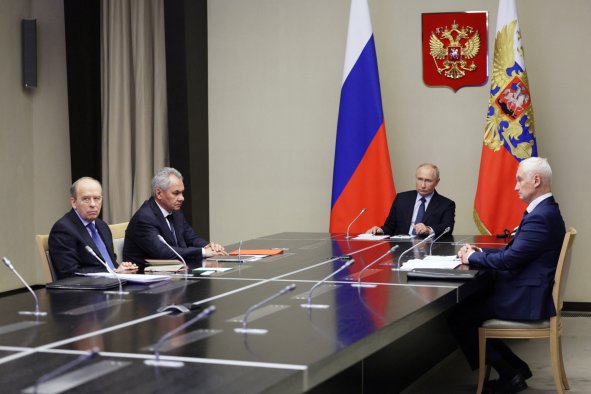China's growing influence has fueled protests that have rocked a port city in the Pakistani province of Balochistan for weeks.
Thousands of ethnic Baloch activists have participated in demonstrations since unrest began in July, organizing sit-ins, marches and road blockades. Protest organizer the Baloch Yakjehti Committee (BYC) has demanded the release of those arrested during the protests, the opening of roads, and accountability for activists injured and allegedly killed by security forces.
Gwadar, in the southwestern province of Balochistan, is home to Gwadar Port, a key hub of the China-Pakistan Economic Corridor (CPEC)—a $62 billion infrastructure project and flagship of China's Belt and Road Initiative.
One of two deep-water ports in Pakistan, Gwadar provides strategic access to the Arabian Sea, facilitating trade between Pakistan, its close ally China, and the Middle East. Since 2013, the Chinese-built port has been operated by the state-owned China Overseas Port Holding Company.
On July 28, the BYC reported that a crackdown by authorities during a rally against forced disappearances resulted in at least one death, 14 injuries, and hundreds of arrests. The Pakistani military, which is tasked with security in Gwadar, stated that a "violent mob" had killed one soldier, while 16 others were injured by "unprovoked assaults" during the demonstration.
The government suspended cellular and internet services for several days, restoring them last week after reportedly agreeing to some protester demands. The Express Tribune cited the Balochistan Home Ministry, promising to release those arrested after a peaceful resolution and reopen blocked roads.
Despite negotiations, protests continue, with BYC leader Bebarg Baloch questioning whether government promises are not simply "rhetoric for the media." Demonstrations persist in cities like Hub, Quetta, Turbat and Nushki, according to Crisis24.
"Gwadar is being fenced in and handed over to China," the BYC said in a statement released in May, blasting the CPEC as a project intended to "hand over Gwadar completely."
Since the project began, the city has been "surrounded" by check points and military encampments, locals have been evicted, and the "entire city" is being fenced off, the statement went on, calling the situation a "gross violation" of human rights.
Newsweek reached out to the BYC via written request for comment.
"Balochistan is crucial for CPEC," Don McLain Gill, a geopolitical analyst at De La Salle University in Manila told Newsweek. "However, the people of Balochistan have been constantly exploited by Islamabad and Rawalpindi."
Gill added that China's increased influence in Pakistan "will not bode well" for Balochistan's people.
"As Beijing seeks to guard its investments, it will compel the Pakistani military to take more aggressive measures," he said. "Recognizing this nexus between Islamabad and Beijing, Balochistan's people are pushing back against human rights abuses and resource exploitation."
China and Pakistan have long enjoyed strong economic, military, and diplomatic ties, describing their relationship as an "all-weather partnership." While Beijing remains silent on the protests, it views the unrest as an impediment to its interests.
China's top diplomat in Balochistan has said stability in the region is critical to the success of the CPEC.
"We hope all political parties and social organizations prioritize national interests and focus on construction and economic development," Consul General Yang Yundong told the press amid earlier protests in January.
Muhammad Shoaib, an assistant professor at Quaid-i-Azam University Islamabad, told Nikkei the "Chinese factor has emboldened the protesters and given them more leverage."
Chinese workers in the region face safety risks from separatist groups like the Baloch Liberation Army (BLA).
A suicide bomber attacked a convoy en route to Dasu in March, killing one Pakistani and five Chinese nationals. A week earlier, a wing of the BLA attacked Gwadar Port, leading to a two-hour firefight in which security forces killed eight militants.
Newsweek reached out to the Pakistan Foreign Ministry and the Chinese embassy in Pakistan with written requests for comment.
Disclaimer: The copyright of this article belongs to the original author. Reposting this article is solely for the purpose of information dissemination and does not constitute any investment advice. If there is any infringement, please contact us immediately. We will make corrections or deletions as necessary. Thank you.




